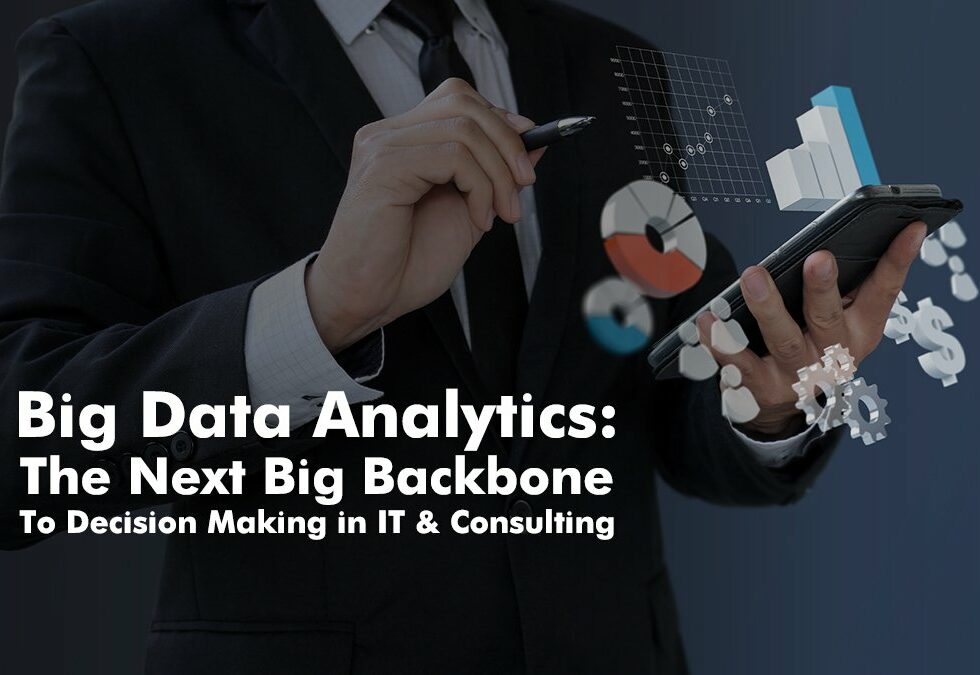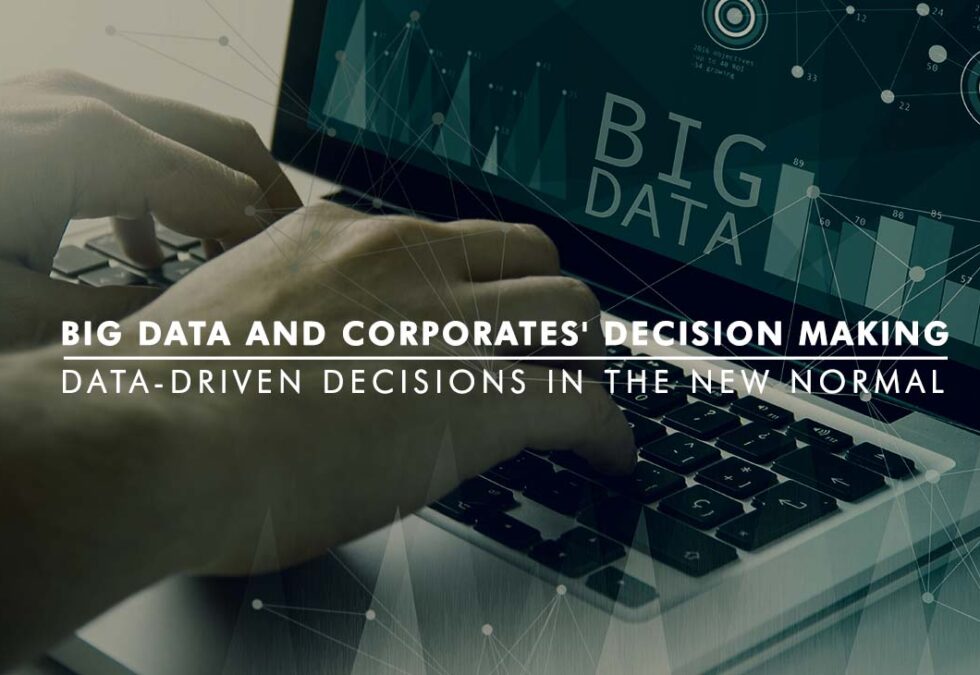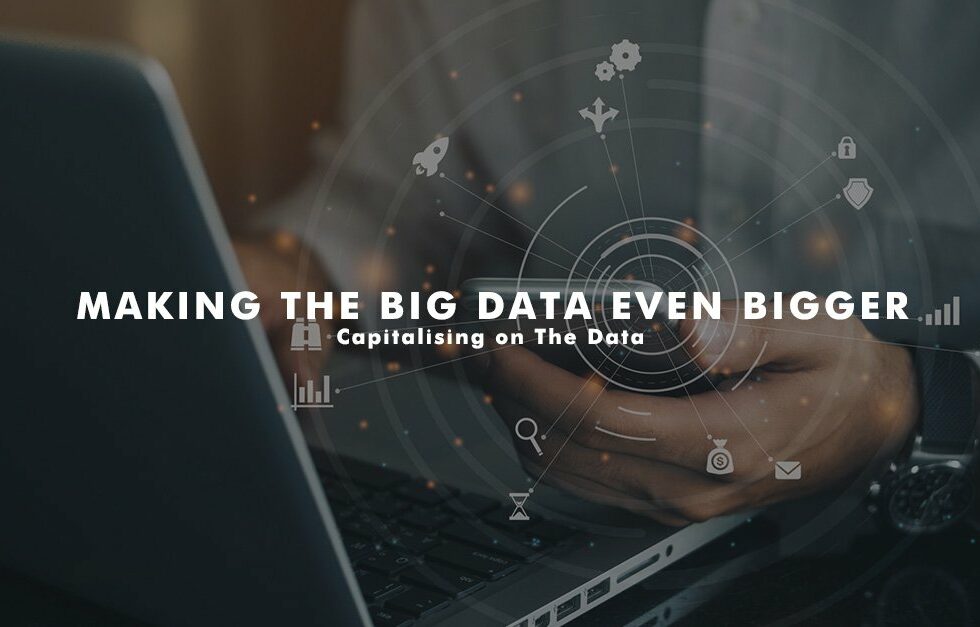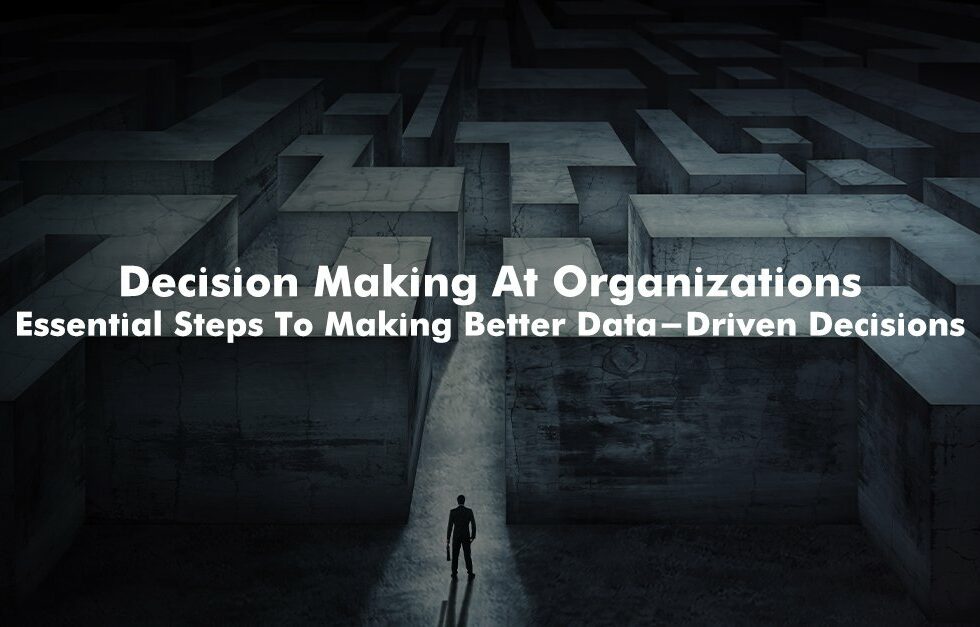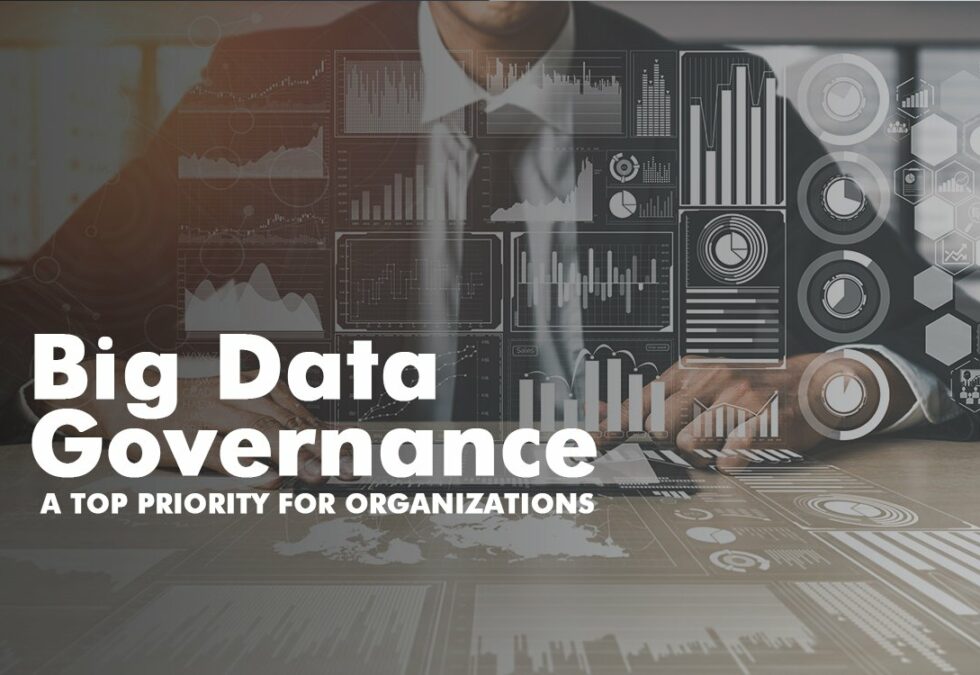“One of the major concerns that organizations face these days is not the Implementation of Big Data Analytics but deriving meaningful insights from Managing and Implementing that Data to reach a Decision Making.”
Data is something that has been the core of IT Services & Consulting for a long time. Data always acted as the core pillar of the organizations as an integral part of it. The information is present in recorded, while sometimes in organized formats, sometimes in unorganized records, while sometimes in cluttered ways spanning all over.
Data plays a huge role in the Decision Making of organizations, especially by the CXO’. But, as the evolution of Big Data practices comes up, the implementation of Big Data Analytics has become imperative.
Big Data, in simple words, refers to a high-volume information asset that demands cost-effective, innovative forms of information processing that eases decision making using the given information.
Big Data Analytics in The Game Changer
According to a recent survey conducted by Garter, 22% of organizations reported that their businesses are digital, with 72% expecting to complete their digital business transformation within two years.
However, there are numerous instances where organizations have struggled to manage the duality of new digital products. And they also struggled for the renewal of legacy products. This struggle from the organizations was visible during the transition from the early stage of experimentation to a digital transformation of the business practices.
It has given rise to an all-new digital revolution maintaining and analyzing large chunks of data sets through Big Data. The complete implementation of Big Data Analytics is still not a reality so far for various reasons. The major of them is the uncertainty and vulnerability about the authenticity of Big Data Analytics.
The other secondary factors are the risk factors involved in the data leakage and theft that made the organizations susceptible to investing in Big Data Analytics with the utmost freedom. Digital Fraud and risks involved in data leakages and data theft act as one of the significant first reasons acting as an obstacle to the Big Data Revolution.
These are a few challenges that organizations are facing in adopting Big Data Analytics.
The Culture of Big Data Analytics
“From Intuitive Decision Making to Data-Driven Decision Making”
Big Data Analytics is the journey of evolution from Intuitive Decision Making to Data-Driven Decision. This culture largely depends on a culture involved in IT & Consulting organizations for a long time. Due to the rising advent of digital transformation and the need to manage and analyze a large chunk of data, the data-driven decision-making approach becomes a part of managing data rather than the intuitive decision-making prevalent in IT & Consulting organizations.
Importance of big data analytics
Many IT & Consulting organizations are good at managing and analyzing Big Data, and hence they invest in hiring talents that do the work for them while other organizations are good at creating meaningful insights from that data leading to make a long term impact from the given information and leading to profits and high sales figures. The focus should be on creating the Impact from the data. And not only analyzing the Data given to lead to a higher purpose that prospers in the long run.
Using the Right Data in Right Format
Sometimes, the organizations have many data, sometimes don’t. Even if they have data, they are clueless about what exactly has to do with the given data. Hence, the role of using the data in a particular format comes into play. It’s not about the quantity of the data you have that matters. It is the quality of the data that matters the most. When organizations focus on the quality of the data, they don’t need anything else but the right approach. This approach will achieve the right insights which will drive the desired results.
Retaining The Talent & Focusing On Expertise:
Due to Industrial Revolution 4.0 and Digital Transformation, organizations are shifting to emerging technologies and implementing Big Data Analytics in their business practices. Therefore, the demand for experts in Big Data Analytics and Data Science becomes crucial.
IT & Consulting organizations are pretty aware that to make the most of the Big Data Analysis, it is of utmost needs to develop the expertise in terms of talent and retain the existing talent. Hence, the organizations are focused on timely training and development sessions to develop expertise, pay hikes, retain experts. And mentoring sessions to develop the talent and expertise.
leveraging data analytics
Big Data Analytics is not just a practice that an organization implements but also a lot more. It forms the core of an organization, especially when it forms the basis of its business practice.
Focusing on Entire Product Cycle
Hence, to leverage the maximum of Big Data Analytics, the organizations have to focus on the entire product cycle. For instance: A software development company, rather than focusing on using Big Data practices, has to look into the overall product cycle. It involves the initial practices of writing the codes to develop the software to the overall implementation. It also leverages the entire data analytics practice most efficiently.
Creating A Customer-Centric common Platform:
These days, customers prefer common platforms where they get services and customization of the services, all in one go.
Organizational Agility:
With the rise in the digital transformation of business practices, agile organizations have evolved to combat inefficient processes. And centralized decision-making practices. Organizational agility makes the organizations’ invest in Big Data practices with a lot more freedom.
Conclusion:
The digital transformation across the industries has led to rapidly changing business practices, making the IT & Consulting organizations adapt to these practices at an even faster pace which offers an exponentially augmenting opportunity for new capabilities and initiatives for the businesses to bank upon in the upcoming years.
The implementation of Big Data Analytics is something that businesses need to bank upon in one way or the other by investing in it to create a scalable and adaptable digital journey encompassing a well-defined digital strategy along with a customized and flexible approach to make a positive impact in the business practices and survive in the long- run profoundly. Now get Leader Group’s many services such as Data Center, Database Administration, cyber security .


